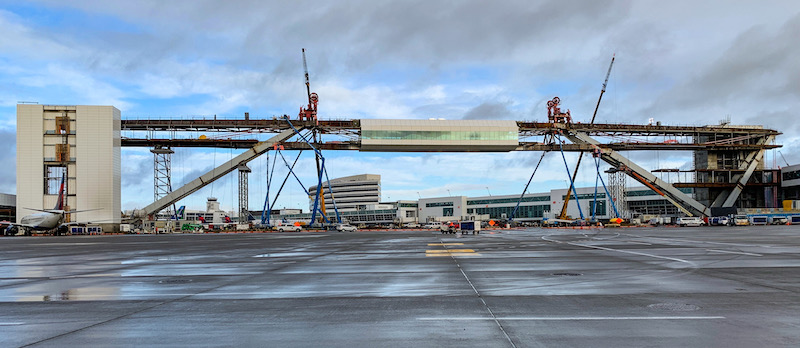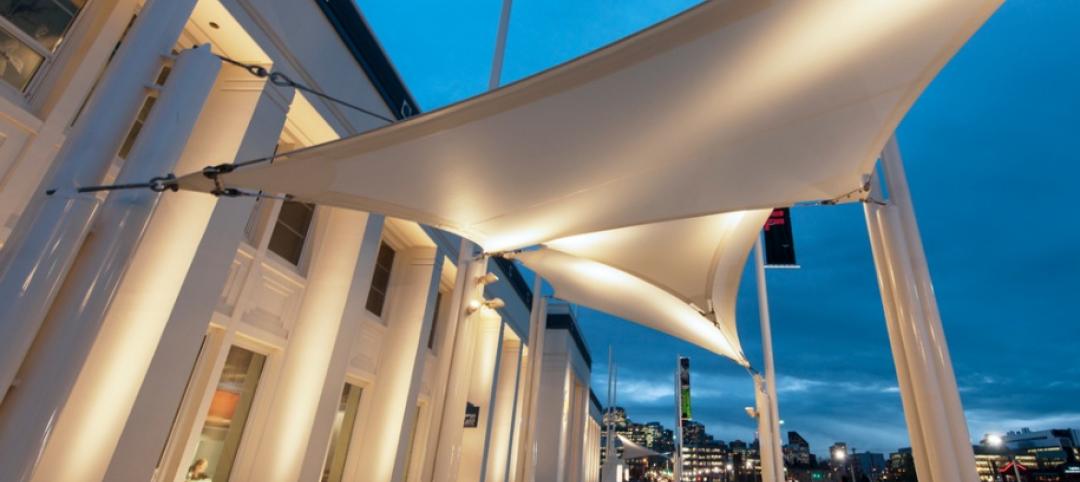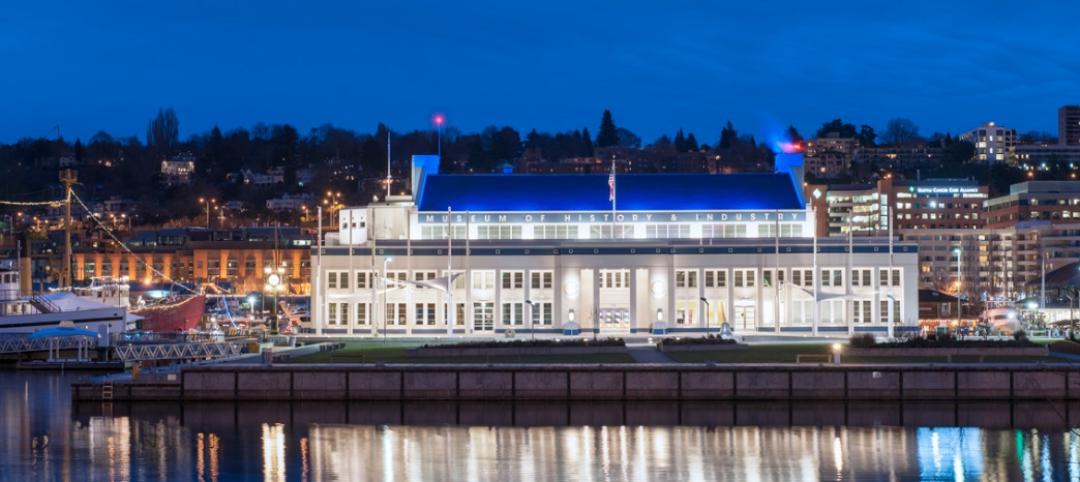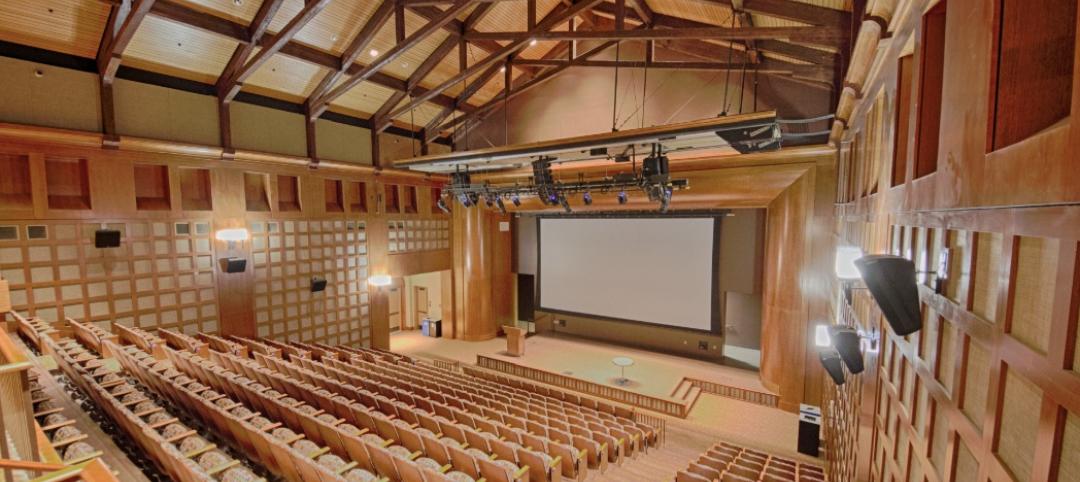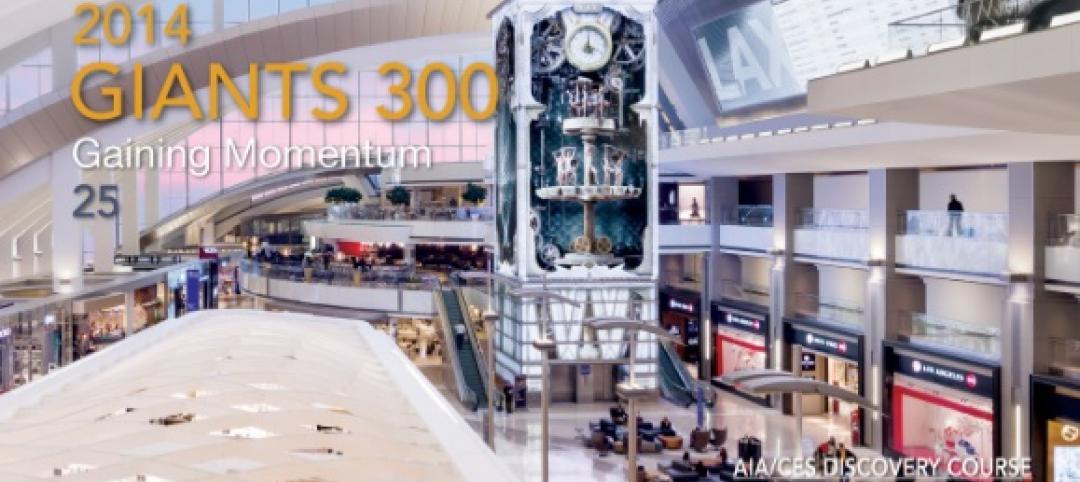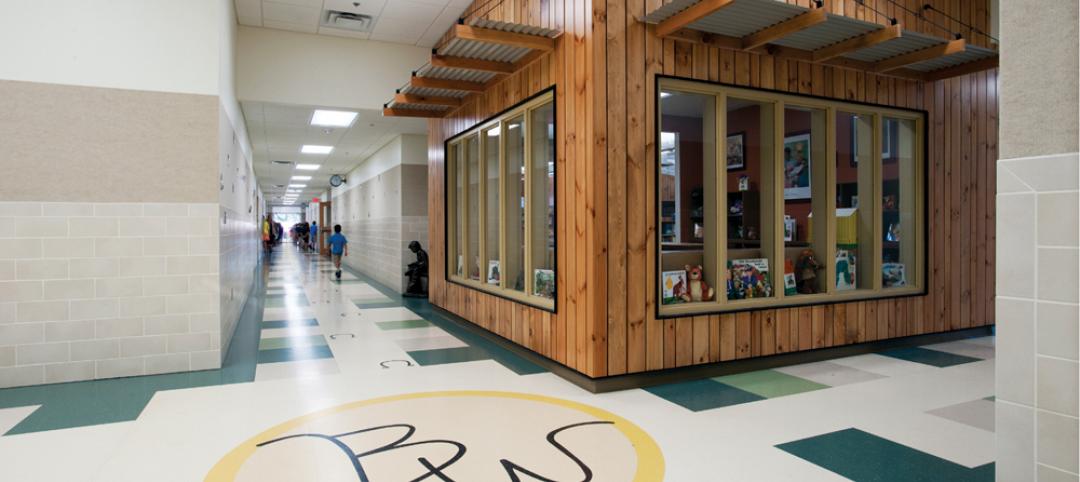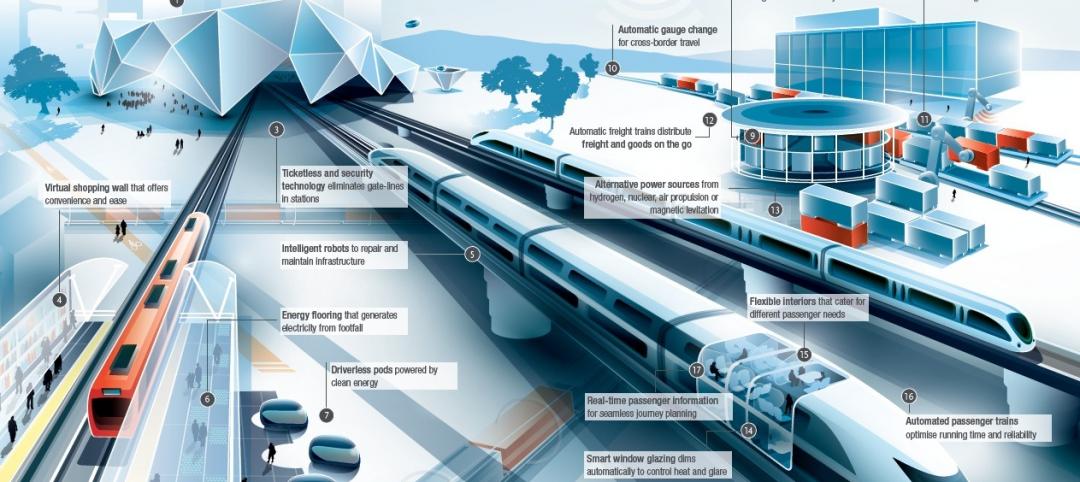Seattle Tacoma International Airport (Sea-Tac) is the nation’s 8th busiest. Last year, the international travelers it handled increased by 15% to account for 5.7 million of the airport’s 51 million passengers.
To provide those travelers with a welcoming environment, the Port of Seattle has been working with a Building Team that includes Clark Construction Group on the design and construction of a new $1 billion International Arrivals Facility (IAF), whose prominent features will include a 780-ft-long elevated pedestrian walkway that spans an active airport taxi lane to connect Sea-Tac’s new International Arrivals Hall with the airport’s South Satellite.
The walkway would be only the third such structure of its kind at any airport, and the world’s longest. (To put its size into perspective, it will be 150 ft longer than Seattle’s Space Needle.)
Its 85 ft of clearance and 610 ft of clear span between footings would be room enough for a 747 jet to get under.
Last month, Clark moved the walkway’s 320-ft-long, 3-million-lb center section into position, using self-propelled modular transport devices. That span was hoisted using four strand jacks, anchored to the walkway’s existing end spans. The end spans were engineered with eight inches of adjustment to fit together precisely to support the weight of the center section.
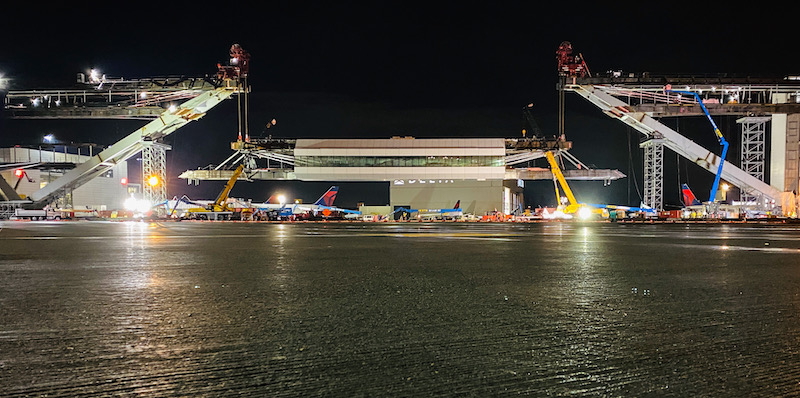
The bridge's center section was moved into position in the middle of the night using self-propelling modular transport devices.
With engineering tolerances between the side and center spans as small as one inch, it was imperative to understand how the three major sections of the walkway would come together before they were connected on site. Thanks to precise planning and laser scanning, the Building Team achieved a fit-up within 3/8 of an inch, enabling the walkway lift to occur without interruption.
Clark Construction Group is the design builder on this project, whose team members include KPFF (SE, Engineer of Record), Skidmore, Owings & Merrill (IAF designer), Schlaich Bergermann Partner (bridge designer), The Erection Company (walkway erector), Supreme Steel (steel fabricator), Mammoet (heavy transport), and KCE Structural Engineers (peer review).
The aerial walkway—which is scheduled for completion later this year—was designed as a cable-stayed bridge and the Accelerated Bridge Construction (ABC) method was applied for the build. The walkway is comprised of 17 components that were prefabricated offsite. (The structural steel alone weighs 3,000 tons.)
Related Stories
| Jul 18, 2014
Engineering firms look to bolster growth through new services, technology [2014 Giants 300 Report]
Following solid revenue growth in 2013, the majority of U.S.-based engineering and engineering/architecture firms expect more of the same this year, according to BD+C’s 2014 Giants 300 report.
| Jul 18, 2014
Top Engineering/Architecture Firms [2014 Giants 300 Report]
Jacobs, AECOM, Parsons Brinckerhoff top Building Design+Construction's 2014 ranking of the largest engineering/architecture firms in the United States.
| Jul 18, 2014
Top Engineering Firms [2014 Giants 300 Report]
Fluor, Arup, Day & Zimmermann top Building Design+Construction's 2014 ranking of the largest engineering firms in the United States.
| Jul 18, 2014
Top Architecture Firms [2014 Giants 300 Report]
Gensler, Perkins+Will, NBBJ top Building Design+Construction's 2014 ranking of the largest architecture firms in the United States.
| Jul 18, 2014
2014 Giants 300 Report
Building Design+Construction magazine's annual ranking the nation's largest architecture, engineering, and construction firms in the U.S.
| Jul 7, 2014
7 emerging design trends in brick buildings
From wild architectural shapes to unique color blends and pattern arrangements, these projects demonstrate the design possibilities of brick.
| Jul 2, 2014
Emerging trends in commercial flooring
Rectangular tiles, digital graphic applications, the resurgence of terrazzo, and product transparency headline today’s commercial flooring trends.
| Jun 30, 2014
Arup's vision of the future of rail: driverless trains, maintenance drones, and automatic freight delivery
In its Future of Rail 2050 report, Arup reveals a vision of the future of rail travel in light of trends such as urban population growth, climate change, and emerging technologies.
| Jun 18, 2014
Arup uses 3D printing to fabricate one-of-a-kind structural steel components
The firm's research shows that 3D printing has the potential to reduce costs, cut waste, and slash the carbon footprint of the construction sector.
| Jun 12, 2014
Austrian university develops 'inflatable' concrete dome method
Constructing a concrete dome is a costly process, but this may change soon. A team from the Vienna University of Technology has developed a method that allows concrete domes to form with the use of air and steel cables instead of expensive, timber supporting structures.


